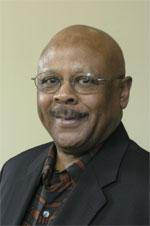William Raspberry, Pioneer Journalist and Other Black Firsts at the Post
By • October 19, 2012 2 5194

To the Editor,
Growing up in northeast Washington, I was only a college sophomore when I first met William Raspberry in 1970. Bowie State University had no journalism program then, only two introductory courses. Our teacher Clyde Reid had invited Bill to the small class. In the Washington Post, I had often read Raspberry’s “Potomac Watch” local column as well as Carl Rowan, whose columns were on the op-ed page. Following his visit to the campus, I went to the newspaper – then at 1515 L Street, N.W. – and was hired as a newsroom copy aide on the fifth floor.
During summer months or on semester breaks, I answered phones, sorted mail, ran replates, gallery proofs and page proofs and moved supplies. It was Raspberry’s influence that inspired me to earn a B.A. in English and join the Post full-time in 1973, when President Nixon was being treated at the Bethesda Naval Hospital for pneumonia. The Pentagon Papers, Watergate and the printers’ and pressmen’s strikes at the paper were all roiling issues between 1970 and 1976, when I worked there.
The Post also had a two-year intern training program in the contract for minority employees. Thus, it was gratifying to see Post reporters and editors Ivan Brandon, Leon Dash, Dorothy Gilliam, Judith Martin, Martin Weil and Hollie West and Vernon Jordan, former president of the National Urban League, the second largest black civil rights organization in America. All were present for the funeral of William Raspberry at the Washington National Cathedral more than two months ago. It was a moving experience to shake Vernon Jordan’s hand just before the service. Jordan was shot in the back by a racist sniper in Fort Wayne, Ind., in 1980. Both Dorothy Gilliam, now at George Washington University, and Bill were hired at the Post in 1962; he at 28, when Phillip Graham was publisher. Bill, who retired in 2005, did not get a Pulitzer Prize until 32 years after his hiring. Such prizes are for younger men with strong legs as career enhancers. Maybe the Post by now would have its first black managing editor or executive editor. Katharine Graham’s rise at the paper followed Phil Graham’s reported suicide in 1963. Bill, hired by Phil, was eulogized by Phil’s son Donald Graham, Dorothy Gilliam, Vernon Jordan and Dr. Vincent Adams.
— Mario B. Schowers,
Washington, D.C.


Mario, your writing highlights the influence individuals can have on shaping the paths of aspiring journalists. The gathering of influential figures at Raspberry’s funeral, including Dorothy Gilliam, Vernon Jordan, and others, speaks to the enduring impact of William’s legacy on the journalistic community.
The Washington Post’s refusal to admit me to a union-management created, 2-year minority reporter intern training program dashed any rational hope of my ever becoming a local reporter for my hometown newspaper.
I went to my union, the Washington Baltimore Newspaper Guild, and filed
a grievance in Dec. 1974. Executive Editor Benjamin Crowninshield Bradlee
dragged me through two years of pure
hell during the Arbitration process. I
was still working at the paper. I was terminated on August 12, 1976 on false charges, then won the case in December.
I was never allowed to return to The Post
except to sign Katharine Meyer Graham’s
death book in the lobby of the 15th Street Building.
I am a Black college graduate. Reporter Claudia Levey, Reporter Carl Bernstein
never graduated from college. Sally Quinn never wrote a story until Mr. Bradlee hired, then married her.
‘‘Tis easier for a Black man to become
U.S. President than Executive Editor of The Washington Post. These things were discovered after my first encounter
with Bill Raspberry. Obviously, by
dint of history, The Post owes me.